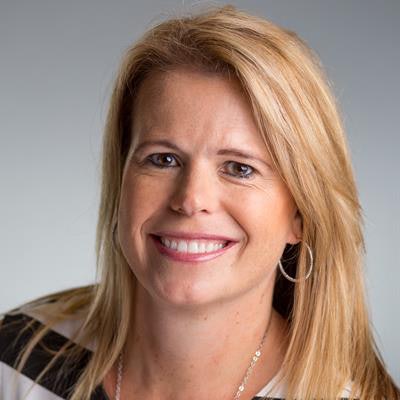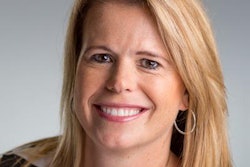
Without a doubt, cancellations and no-shows are an epidemic in our industry and probably the biggest issue that most dental offices face on a regular basis. Over the years as I've spoken with dental office owners and managers, many of them have taken great pride in how they've addressed ongoing cancellation problems -- by charging patients a fee for missed visits.
They are usually surprised at my response: I do not believe charging a cancellation fee is the solution to this problem.
 Laura Hatch is the founder of Front Office Rocks.
Laura Hatch is the founder of Front Office Rocks.Here are the two reasons why I think charging a fee does not solve the problem:
- For patients, being charged a fee for not coming to their appointment feels like a slap on the hand. They may pay it begrudgingly, or they may choose not to pay it and leave the practice. Either way, charging the fee doesn't teach patients not to cancel or miss their appointments. They learn there is a price for not keeping the appointment, but they don't necessarily change their behavior.
- From a financial perspective, a nominal cancellation fee does not recoup what is lost from that open chair time. Charging a fee may give the office a feeling of penalizing the patient, but the fee itself won't make up for the open chair time and lost production.
The first step on the path to fixing the problem with no-shows and cancellations is to understand why it is happening. What are the detailed reasons behind a canceled or missed visit for each type of appointment?
The overarching reason for the epidemic of cancellations and no-shows in dentistry is a purely psychological one. You put drills and needles in people's mouths; they know that they are going to be paying a lot of money for something no one is ever going to see and, often, it didn't even hurt before they came for their visit. It's the unfortunate truth of providing dental services: We are not offering anything enjoyable. We do things that people don't like and would rather avoid. So, if they can come up with a reason for why they can't possibly show up and get the work done today, they will.
3 types of appointments
This attitude about the dental industry is the foundation for all other reasons for canceling or not showing up. With that in mind, it's helpful to identify the specific context of certain types of dental appointments that are notorious for no-shows and late cancellations. There are three types of appointments that patients frequently cancel, and each one features specific difficulties in terms of scheduling.
1. New patients
These are people who don't have any history with your office but have an external circumstance that's motivating them to schedule a visit to your office. Maybe it is because they have a tooth that is starting to bother them, or they know it has been way too long since they had a cleaning.
Regardless of the motivating factor, it is not because they are looking forward to experiencing a new dental office or because a visit to the dentist is on the top of their list of fun things to do. It takes a powerful motivator to outweigh the anxiety or inconvenience of going to see a dentist you have never met.
Therefore, when a new patient schedules with the practice, you want to make sure two things happen:
- Build rapport with the patient on the phone.
- Get the patient scheduled as soon as possible.
New patients need to feel a connection with your office and a reason to show up for the appointment. If you take the time on the phone to build rapport and give them a reason to feel more comfortable about their upcoming visit, there is a higher chance they will show up.
You also want to make sure that you book them as soon as possible, while they are still feeling motivated to follow through. If you book patients out too far into the future, you run the risk they will lose the motivation or sense of urgency by the day of the appointment, leading them to not show or cancel.
2. Doctor-production patients
When patients cancel, more than likely the issue is that they were never fully committed to the treatment. During their previous visit, they said OK to being scheduled for a specific procedure but may not have felt completely convinced that it was necessary or that they can afford it.
If your office did not make sure the patient was on board to do the work, it's likely the patient will wake up the day of the appointment, decide that going to the dentist doesn't sound like fun, and cancel.
Anyone who works in a dental office knows that we give 50% odds to certain patients not showing for an appointment, which is why we double-book those patients just in case. The only way to know if patients are completely committed to getting treatment done is to get them to pay in advance before you put them in the schedule. When patients have paid for the work already, whether it is a partial deposit or the full amount, there is a higher chance that they are going to keep the appointment.
3. Hygiene patients
Ever have patients cancel their dental appointment to get in with their hairdresser? Why is that? Because they know that if they cancel with their hairdresser, then it will be a four- to six-week wait to get back in again.
On the other hand, they treat dental appointments much more casually because we've become too nice about canceling. Typically, we ask them to give us more notice in the future and then we rebook them relatively soon. If you want to reduce cancellations in your hygiene department, the answer is simple -- stop making it so easy for patients to reschedule.
Explain to them how booked you are, schedule for an appointment several days away rather than a coveted last-minute spot, and get a verbal agreement not to cancel at the last minute in the future.
No matter what type of appointment you're scheduling with patients, make sure to spend time with them reviewing your cancellation policy. Make it clear to patients that you need their agreement that they won't cancel at the last minute, at the risk of losing the ability to prebook appointments.
Explain your appointment policy to every new patient, and review it as necessary when a patient cancels a visit. Ultimately, the schedule is yours to run.
If you have patients that do not respect your policy or follow your rules, then stop preappointing them. Charging a fee for a cancellation or no-show will not fix the problem. When patients commit to following your scheduling rules, then you will be able to take control of your schedule. That is the only effective way to decrease cancellations and no-shows.
Laura Hatch is the founder and owner of Front Office Rocks, a dental practice front office training firm. Her new book, Step Away from the Drill, is now available at amazon.com. She can be reached at [email protected].
The comments and observations expressed herein do not necessarily reflect the opinions of DrBicuspid.com, nor should they be construed as an endorsement or admonishment of any particular idea, vendor, or organization.


















